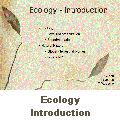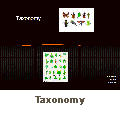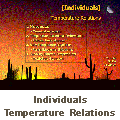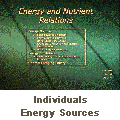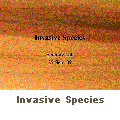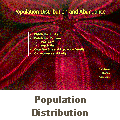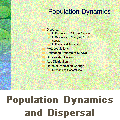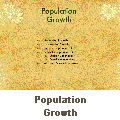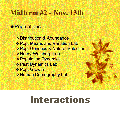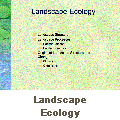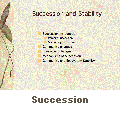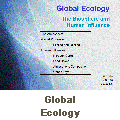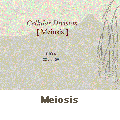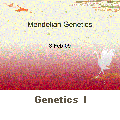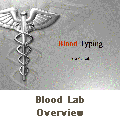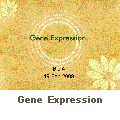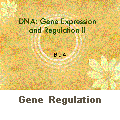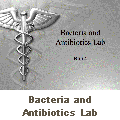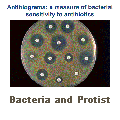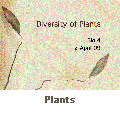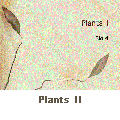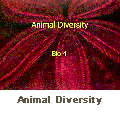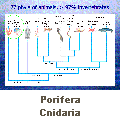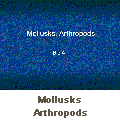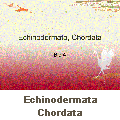For information related to biology classes, please use the navigation menu on the left.
Note: Lectures and class notes are only available to students currently registered for the respective class.
BIO 106 showcases the essential role that ecology plays in an increasingly urbanized world, while offering an in-depth overview of the major concepts and sub-disciplines in the field of ecology.
The course addresses issues of sustainability and biodiversity, among others, and builds upon such ecological concepts through laboratory experimentation, field trips, small-scale field studies, and computer lab exercises.
Course Information:
Biology 106 (Fall 2008)
Lecture/Lab: F 9am-2:50pm
Instructor:
Dr. Timothy Leslie
M801, 718-780-4104
Email: timothy.leslie@liu.edu
Office Hrs:
T 2-4; W 2-4
Textbook:
Molles, M. C., Jr. 2006. Ecology: Concepts and Applications. 4th edition. McGraw-Hill, New York.
*Now available in LIU bookstore.
Course overview:
This course will give an in-depth overview of the major concepts and sub-disciplines in the field of ecology. We will build upon many of these concepts through laboratory experimentation, field trips, small-scale field studies, and computer lab exercises. You will learn field collection and monitoring techniques, develop skills in data management and quantitative analyses, and learn to effectively communicate your scientific findings.
Throughout this course, you will also see how ecology plays a role in our increasingly urbanized world. For example, in the past you may have passed a tree on your way to class and not given it a second thought. After this class, you may recognize that tree as a distinct species, such as Ginko biloba L., which was likely chosen by an urban planner due to its long life span, tolerance to shade and pollutants, adaptability to various soil conditions, and natural resistance to insect pests and disease.
As human activities permeate every corner of the globe, sound ecological research is essential to understanding what constitutes a sustainable future. Hopefully this course will allow you to develop a better understanding of the living world around you and appreciate how humans are, as Thoreau stated, “an inhabitant, or part and parcel of Nature.” Although we may forget it at times, human existence is contingent upon the stewardship of the biodiversity that provides us with the ecosystem processes necessary for life!
Course requirements:
In addition to the textbook, a few items will be needed for this class:
- 3-ring notebook for class materials
- Comfortable walking shoes for field trips and research
- Backpack, sunscreen, water bottle and any other items you may need on days spent outdoors
- A field notebook (will be provided) to record details of labs and field trips.
Assignments:
Readings. Before each class, readings from the textbook will be assigned. Supplemental readings from journal articles, popular press, or online content may also be assigned. These additional materials will be posted for access on my website: timothy@timothyleslie.net.
Testing. Weekly quizzes will be given to re-enforce topics covered in class and will be an important part of your overall grade. A mid-term and final exam will also be given. Studying for and keeping up with the weekly quizzes should greatly assist your ability to do well on exams.
* Scientific work is useless if not communicated effectively; this course will develop your communication skills:
Writing. At the beginning of this course you will be given a research journal that will be graded at the end of the semester. In it, you will keep detailed notes on lab and field activities (e.g., objectives, protocols, measurements, findings). Other written assignments will consist of 1-page summary papers and lab reports written in proper journal format. Scientific writing is a skill that takes effort and practice just like any other endeavor. Please use my office hours, or set up meetings with me individually, if you feel you need help in this area.
Presentations. Participation in class is important and will be considered in your final grade. For some labs, we will also have group presentations to share findings with others in the class.
Grading:
| Topic |
% total |
# points |
| Attendance & participation: |
10% |
(60 pts) |
| Research journal: |
10% |
(60 pts) |
| Quizzes: |
12.5% |
(75 pts) |
| Exams: |
30% |
(180 pts) |
| Writing assignments: |
37.5% |
(225 pts) |
| TOTAL |
100% |
(600 pts) |
* Plagiarism will not be tolerated. This includes copying material from books, journals, the Internet, or classmates. Any assignment or test in which plagiarism is found, will receive a score of a zero.
This content is available only to students currently registered for BIO106.
If you are a student, please click HERE to see the lecture slides.
This content is available only to students currently registered for BIO106.
If you are a student, please click HERE to see the lecture slides.
Reading Week 2: Reviving the Lost Art of Naming the World (Carol Kaesuk Yoon, The New York Times)
Reading Week 3 (1): U.N. Sets an Example by Offsetting Its Carbon Emissions (Elisabeth Rosenthal, The New York Times)
Reading Week 3 (2): Proposals Lag Behind Promises on Climate (Neil MacFarquhar, The New York Times)
Reading Week 4: Wolves Aren’t Making It Easy for Idaho Hunters (William Yardley, The New York Times)
Reading Week 5-8: Walruses Suffer Substantial Losses as Sea Ice Erodes (Andrew C. Revkin, The New York Times)
Reading Week 5-8: After a Devastating Fire, an Intense Study of Its Effects (Randal C. Archibold, The New York Times)
Reading Week 5-8: Jumping Spider Prefers Green Leaves to Meat (Henry Fountain, The New York Times)
Reading Week 5-8: 3 Americans Share Nobel for Medicine (Nicholas Wade, The New York Times)
Reading Week 9-14: Human-Generated Sounds May Be Killing Fish (Science Daily, Mar 13, 2009)
Reading Week 9-14: North American Origins for the Falklands Wolf (Henry Fountain, The New York Times)
Reading Week 9-14: In the Mediterranean, Killer Tsunamis From an Ancient Eruption (William J. Broad, The New York Times)
Reading Week 9-14: City Hall Aide Is Named Environmental Protection Commissioner (Mireya Navarro, The New York Times)
Reading Week 9-14: Data Show a Decline for Tigers in Russia (Michael Schwirtz, The New York Times)
Reading Week 9-14: Climate Change To Cost Trillions, Say Economists (Richard Ingham, Yahoo! News)
Biology 4 is the second semester of a year-long series of introductory biology lectures for pre-health majors. This first half of the semester focuses on the underlying processes allowing organisms to reproduce, grow, and evolve. Topics include cellular reproduction, animal development, and genetics. The second half of the course provides an overview of evolution and the resultant diversity of life on earth including microbes, protests, fungi, plants and animals.
Invasive Species
Stinson, K.A., Campbell, S. A., Powell, J.R., Wolfe, B.E., Callaway, R. M., thelen, G.C., Hallett, S. G., Prati, D., & Kilronomos, J.N. (2006). Invasive plant suppresses the growth of native tree seedlings by disrupting belowground mutualisms. PLoS Biology, 4(5), 0727-0731.
Vitousek, P.M., D'Antonio, C.M., Loope, L.L., Rejmanek, M., & Westbrooks, R. (1997). Introduced species: A significant component of human-caused global change. New Zealand Journal of Ecology, 21(1), 1-16.
|
